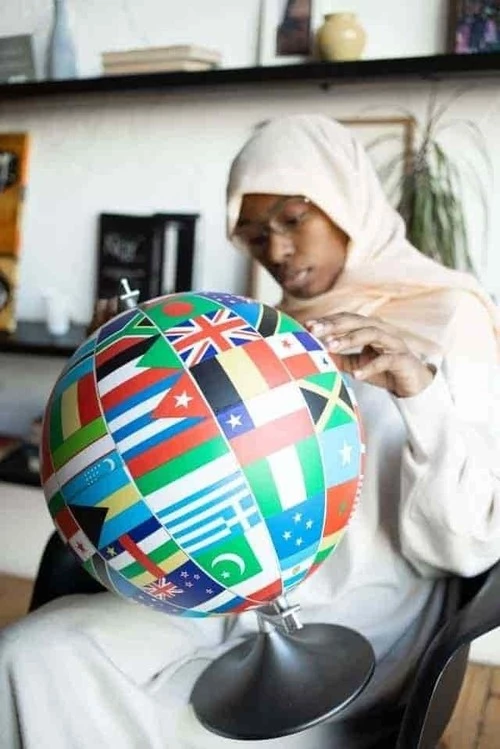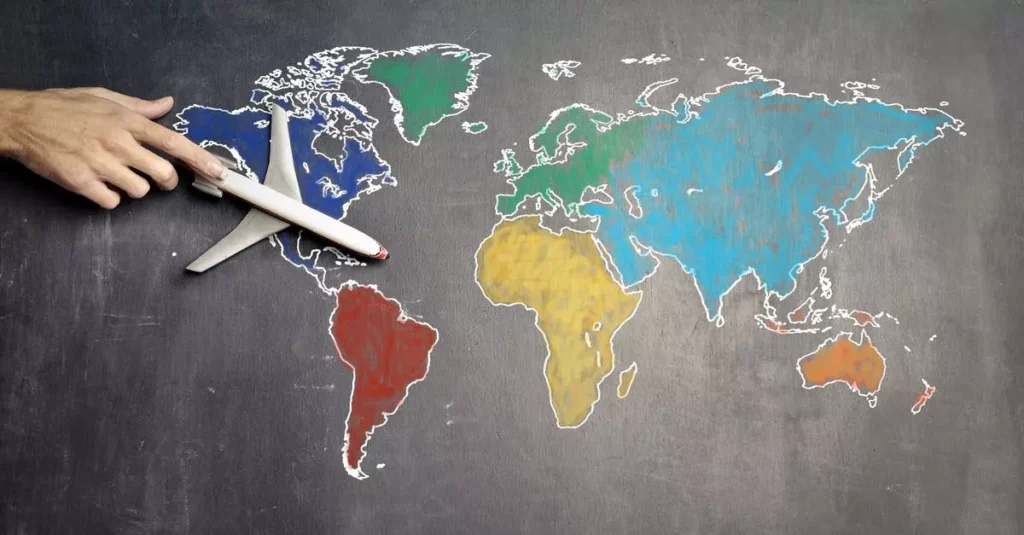When people hear the term “global citizenship” for the first time many of them struggle to understand its actual meaning. Likewise, when educators argue the importance of teaching global citizenship skills to young learners at schools, their parents often dismiss these skills as unnecessary and unimportant. However, global citizenship skills are more important than ever and an increasing number of schools across the world are introducing subjects devoted to teaching such skills in their curricula.
So let us define “global citizenship” first. Broadly speaking, global citizenship is an awareness of the existing interconnectedness among people, societies, and cultures around the world. A global citizen is someone who has a deep understanding of the wider world, takes an active role in the lives of their communities, and works with others to make life on our planet more peaceful and sustainable.
Scholars generally point out several types of global citizenship. They are:
- Political global citizenship concerns the promotion of democracy and the process of maintaining a well-organized society.
- Moral global citizenship is based on a shared understanding of a universal moral code with a special emphasis on human rights.
- Economic global citizenship concerns economic international development and the effects of free markets and corporations.
- Economic global citizenship is focused on a deep awareness of various cultures, diverse groups, and their values.
- Social global citizenship focuses on global civil society and advocacy for one’s freedom of expression.
- Environmental global citizenship encourages individuals to be responsible for their natural environment.
More and more young people are living like global citizens today, traveling around the globe, leaving their countries to study abroad, undertaking internships in international companies, relocating to other countries, making lasting friendships with people from different countries, etc. Their lives transcend the borders of their own countries and overlap with different cultures, countries, and environments. In part, the increasing number of young people who

live like global citizens is a natural process – our world is becoming increasingly and rapidly globalized and now is very different from the world people used to live in twenty or thirty years ago.
One can safely assume that being a global citizen entails a myriad of professional and other opportunities, ranging from being able to find a good job, making meaningful connections with other people, and simply thriving in the constantly changing and overlapping worlds and cultures. Therefore, educating young learners to be global citizens should become one of the teachers’ goals.
And then a reasonable question arises – how can we teach global citizenship to our children and young learners? If it is such a broad and multidimensional concept, which is very hard to grasp, what and how exactly can we teach it?
Obviously, teaching global citizenship is not as straightforward as teaching mathematics and there is no clear set of subjects that children must pass to be “qualified” global citizens.
Global Citizenship Specific Skills
Indeed, the concept of global citizenship may sound too abstract, but according to Oxfam, it actually includes a number of specific skills, which include:
- critical and creative thinking
- empathy
- self-awareness and reflection
- communication
- cooperation and conflict resolution
- ability to manage complexity and uncertainty
- informed and reflective action
As a first step, educators must start encouraging open communication among their students, incentivizing children to learn by exploring new concepts and ideas and being active learners throughout their lives, encouraging them not to take information at face value but to be critical.
The role of the teacher in instilling global citizenship values in their students is particularly important. All traditional teaching methods which have been around for many decades such as teacher-centeredness, product-centered learning, and merely transmitting knowledge to students should be foregone when it comes to raising a global citizen. Instead, teachers should act as facilitators as they assess evidence, negotiate, debate and discuss. Ideally, the teacher should strive to create a learner-centered classroom, encourage process-centered learning, be an organizer of knowledge and act as an “enabler”.
Although teaching global citizenship should not be in the form of presenting facts, global citizens must be aware of the main global citizenship issues such as human rights, poverty, racism, LGBTQ oppression, diversity, environmental problems, corruption – after all these issues are relevant to every culture and society on the planet.
How To Become A Global Citizens
In order to be global citizens, learners also should be proactive. Unfortunately, in many countries learners are taught to be merely passive recipients of knowledge, answer their teachers’ questions and learn individual subjects. They are also just spoon-fed information without being encouraged to critically assess it. Raising global citizens requires a complete overhaul of these obsolete approaches – teachers should encourage their students to be active and participatory learners, ask questions, take responsibility for their own learning, collaborate with other students, actively listen to the opinions of their peers and genuinely connect with their learning.
Despite its obvious benefits for younger generations, global citizenship is still absent from school curricula in many countries. While liberal democracies are more likely to advocate the importance of global citizenship classes in school curricula, societies deemed less democratic or even authoritarian will be against such education.

Authoritarian leaders are obviously more interested in banning global citizenship education in order to cut off their people from democratic values, make their dictatorships and oppressive regimes more sustainable. The very idea of global citizenship is inherently dangerous for authoritarian regimes as it promotes democracy and liberal values and therefore can undermine autocrats’ power.
Yes, global citizenship is a privilege. Global citizens are entitled in many ways. They have freedom of speech, freedom of movement, better employment opportunities, and other significant benefits that make their lives more fulfilling. But apart from these benefits, being a global citizen also entails responsibilities.
According to Ron Israel, Co-Founder and Director of the Global Citizens’ Initiative. These responsibilities are as follows:
- To understand one’s own perspective and the perspective of others on global issues.
- Respect the principle of cultural diversity, which means maintaining respect for the world’s different cultural traditions
- Make connections and build relationships with people from other countries and cultures
- Understand the ways in which the peoples and countries of the world are interconnected and interdependent
- to understand global issues
- Advocate for greater international cooperation with other nations
- to advocate for more effective global equity and justice
Indeed, if global citizens want to have more fulfilling lives, they have to make their respective contributions to resolving the global problems the world is facing today. They should strive to make positive changes in the world for themselves and future generations.








































